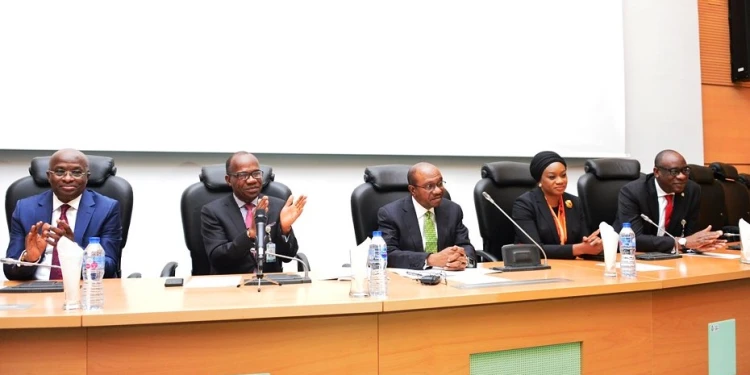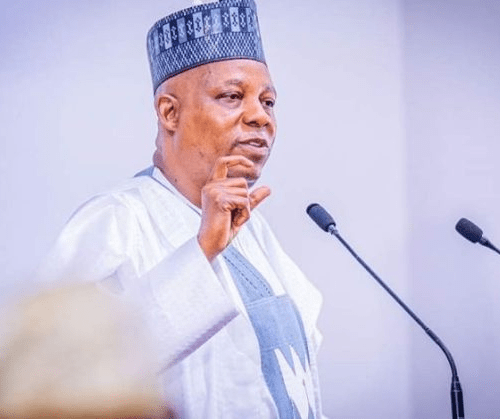Economists at Nigeria’s Central Bank claim they are currently leveraging the tools in their monetary policy toolkit to bring Nigeria’s latest inflation rate under control.
However, the latest inflation rate from NBS shows that the CBN has a big problem on its hands. Especially as the attempt of simply focusing on adjusting interest rates hands doesn’t seem to be working to combat effectively.
According to the latest data from the National Bureau of Statistics, the inflation rate for the month of April 2023 reached 22.2%, up from 22% in March. This is now the highest inflation rate on record since January 2004, nearly 19 years ago. It is also the highest on record since the current basket became in use in 2009.
In response to the persistent inflationary pressures, the central bank has taken the approach of fighting inflation by raising interest rates. The bank has raised rates from 11.5% to 18%, resulting in a whopping 650 basis point increase. The unprecedented rise in rates is aimed at reducing the pace of inflation, regardless of the consequences.
Additionally, readers will recall that Nigeria’s central bank also led the suboptimal rollout of new Naira notes including the attempt to reduce cash in circulation.
- Thus Nigeria’s inflation remains stubbornly high, despite increases in headline interest rate, as well as, attempts to stifle consumer demand through reducing cash-in-circulation
The unrelenting spikes in inflation will heavily influence the central bank’s decision at the next monetary policy meeting scheduled for this month.
However, as the central bank’s team of economists prepare for the upcoming meeting, they must confront the reality that unilaterally and perpetually increasing interest rates is ineffective, whilst acknowledging the limitations of raising interest rates to combat inflation.
Nairametrics opined nine months ago, that interest rate hikes will not bring down inflation. Read the article here.

Unfortunately, the apex bank is now in a race against time, especially considering the incremental effects of the removal of fuel subsidies, which could further exacerbate inflationary pressures.
It is crucial for the Central Bank of Nigeria (CBN) to reassess its approach and consider taking more decisive and comprehensive measures to address the alarming inflation rate.
Raising interest rates alone may not be sufficient to curb inflation, as evidenced by the recent data. While it is essential to tighten monetary policy to reduce liquidity in the economy and curb excessive consumer demand, the CBN needs to go beyond interest rate adjustments to achieve lasting results.
One area the CBN should focus on is tackling the root causes of inflation and going hard with policies that bite and not just bark. This can be grouped into real-sector root causes and financial services root causes.
Real sector
The main driver of Nigeria’s inflation is Food inflation, specifically the Farm-to-table factors.
The Central Bank is aware that the main driver of Nigeria’s inflation is food inflation, and even the Governor has acknowledged this. These Farm-to-table challenges refer to factors adversely impacting
- Crop production at farms such as security concerns, climate change (flooding), and mechanization which limit farmers from delivering crop production.
- Logistics to seamlessly convey agricultural output in bulk from farmers to food retailers and through to our kitchen tables. These include bulk transportation capability, storage capacity, the unit of electricity for preserving perishables, etc
It is crucial to address supply-side constraints that contribute to rising prices, such as inadequate infrastructure, bottlenecks in the distribution chain, and supply disruptions.
- The central bank should collaborate with relevant government agencies to implement policies that promote investment in critical sectors, improve productivity, and ensure the efficient delivery of goods and services.
- By addressing these underlying issues, the CBN can alleviate the inflationary pressures at their source.
Financial Sector
To effectively address the rising rate of money supply and combat inflation, the Central Bank of Nigeria (CBN) should utilize a range of tools available within its monetary policy framework.
- One such tool is the adjustment of reserve requirements for banks, whereby a higher percentage of deposits is mandated to be held as reserves instead of being lent out.
- This is a very unpopular tool due to the effects it has on bank profits. However, the latest results from commercial banks suggest they are still able to post higher profits despite the CRR policy of the CBN.
By implementing stricter reserve requirements, the CBN can restrict the amount of money accessible for lending and spending, ultimately leading to a reduction in the money supply and mitigating the inflationary pressures that persist.
- This approach demonstrates the CBN’s commitment to taking decisive measures to stabilize the economy and underscores the importance of a proactive stance in managing inflation.
- In order to address the issue of rising money supply and effectively combat inflation, it is crucial for the Central Bank of Nigeria (CBN) to strengthen its supervision and regulation of banks.
- This entails implementing measures to ensure responsible lending practices and prevent the creation of excessive credit.
The CBN can achieve this by imposing stricter guidelines on banks, including enhanced lending standards, more robust risk management protocols, and stringent capital adequacy requirements.
To effectively manage the money supply and address inflationary pressures, the Central Bank of Nigeria (CBN) can utilize open market operations (OMOs).
Through OMOs, the CBN can purchase government securities from banks and other financial institutions at rates that are not just attractive to banks and institutional investors but to retail investors. This strategic approach reduces the amount of money in circulation, serving as a contractionary measure to control inflation.
The Central Bank of Nigeria needs to go beyond incremental interest rate adjustments and adopt a more holistic approach to combatting inflation.
While raising rates can be a part of the solution, it is essential to address the root causes of inflation and implement targeted measures to support affected sectors.
By taking decisive action and promoting transparency, the CBN can improve its effectiveness in managing inflation and contribute to a more stable and prosperous Nigerian economy.
Source: Nairametrics





















